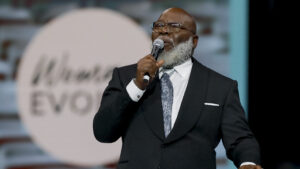
NASHVILLE (BP) — Each year, Lindsey Allen grabs a pen and highlighter to comb through the “Ministers’ Tax Guide” provided through GuideStone Financial Resources. It’s been her practice for decades.
It helps her “feel ready to tackle the time-consuming job of doing our taxes. The guide also gives me a heads up for our future retirement planning, such as a way to structure our housing allowance through GuideStone,” said Allen, a minister’s wife in the Dallas area.
The guide is particularly useful for some more common tax mistakes made by ministers, said Seth Hawkins, a director of retirement solutions at GuideStone.
Designating more housing allowance than allowed, not reporting excess
“Many ministers are under the misconception that they can always exclude from income the amount a church designates as a housing allowance for income tax reporting purposes,” said Hawkins.
Subject to IRS rules, ministers eligible for a housing allowance may exclude the least of the following amounts:
- the designated housing allowance
- actual eligible housing expenses
- the fair rental value of their home, furnished, including utilities.
Ministers who rent their homes can exclude whichever is lower – the amount designated by their church or actual housing expenses, which include rent, renter’s insurance, utilities, furnishings, repairs and improvements.
Should a minister live rent-free in a church-owned parsonage, he can exclude the lower amount of the following:
- the housing allowance designated by the church
- actual housing expenses such as utilities, furnishings, repairs and improvements that are not paid by the church.
“These limitations are the reason why it is critical that ministers accurately estimate their housing allowance expenses at the beginning of each year so that the church can designate the appropriate amount,” said Hawkins.
“If the housing allowance designated by the church exceeds the amount that can be claimed by the minister, the excess housing allowance should be reported with wages on line 1 of Form 1040 with ‘excess housing allowance’ on the dotted line next to line 1.”
Not keeping house expense receipts
“Ministers should keep all receipts to prove amounts designated as minister’s housing allowance in the unlikely chance they are audited,” Hawkins said. “These documents should be retained for six years from the time of your tax return.”
Not claiming housing allowance on retirement distributions
Ministers are generally aware of their ability to receive a housing allowance, but the benefits don’t stop in stepping away from full-time vocational ministry.
“Once retired, ministers are eligible to designate housing allowance on some or all their retirement benefits distributed through a denominational pension board, such as GuideStone,” said Hawkins.
Not taking full advantage of their accountable reimbursement plan
“In this arrangement, the church pays for or reimburses the minister for business-related expenses, allowing them to be excluded from taxable income,” he said.
“Appropriate recordkeeping expenses such as work-related travel, meals, supplies, etc., and submitting those for reimbursement will maximize the plan’s benefits.”
Hawkins says “it is strongly encouraged” for churches to adopt an accountable reimbursement plan should they not have one in place so as to not effectively “penalize ministers by having to pay taxes on dollars used for ministry expenses.”
Staying informed can help benefit not only the minister but the church as well.
“Tax laws are always changing, and ministerial tax issues are complicated compared to employees who aren’t ministers,” Hawkins said. “The tax guide is our most popular resource on our website as ministers are looking for trustworthy information.”
Each year, clients tell them the guide makes things easier than going through the process alone.
“Sometimes, our members will provide the tax guide to their preparer to ensure he or she knows the specifics on a ministerial tax issue. We’re thankful it’s such a trustworthy resource for pastors,” said Hawkins.














